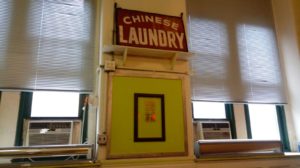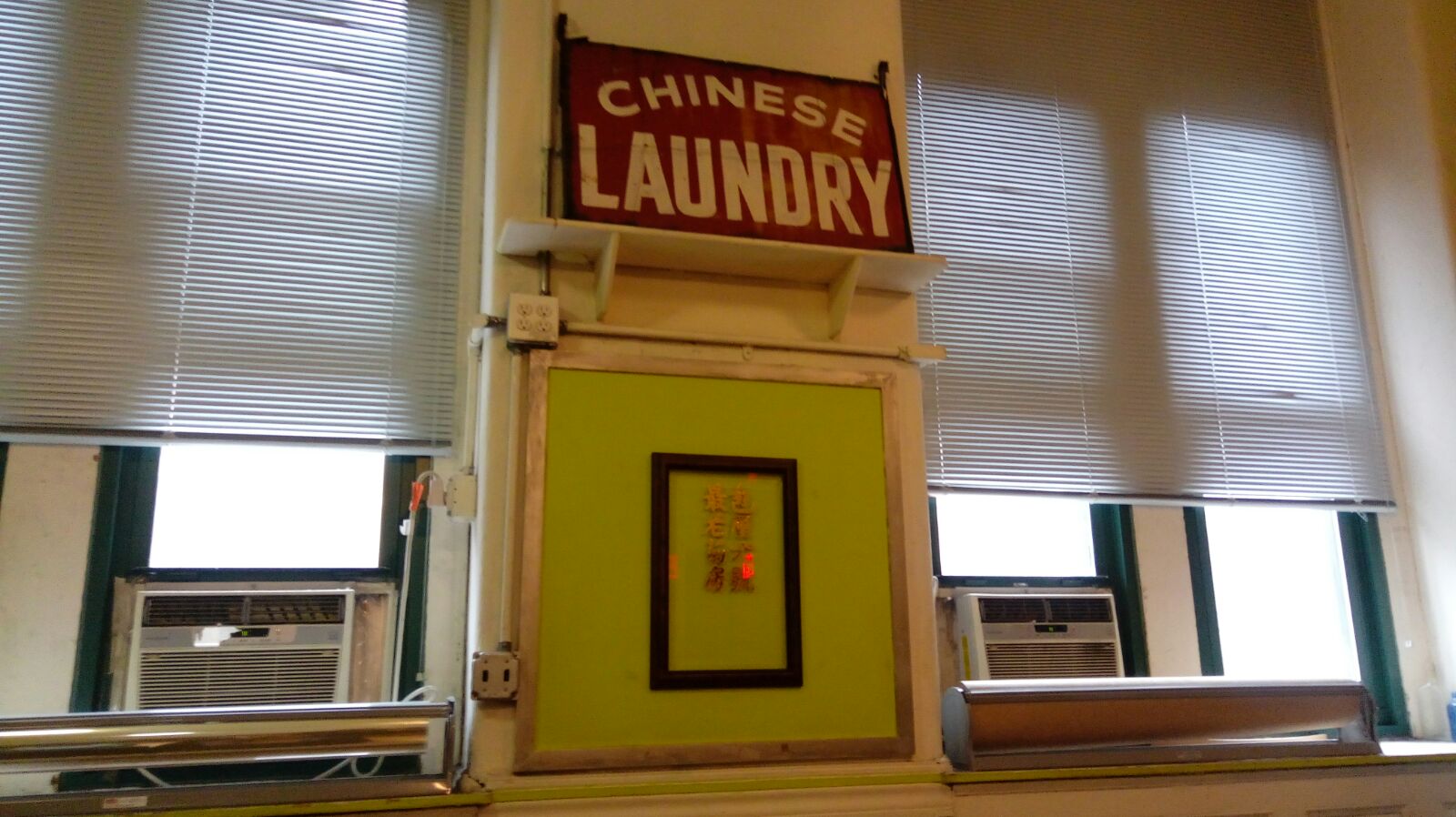
At the Museum of Chinese in America Collections on 70 Mulberry Street.
By Clarence Leong
In 1935, Shuck Wing Chin left Taishan County in southern China, bade farewell to his wife and children, and embarked on a journey to America. Officers at San Francisco’s Angel Island Immigration Station detained him for 33 days before they decided Shuck Wing was who he had claimed to be – the son of an American citizen – and allowed into the country during a time when the Chinese Exclusion Act was in place.
He would never return to China again his whole life, dying alone at the Bachelor’s Apartments at 111 Mott Street in New York. His personal items and papers would be rotting away in landfill, forgotten by this world, were it not for the workers from the Museum of Chinese in America who rescued them from a dumpster.
Shuck Wing’s story was emblematic of Chinese American experience at the time because many immigrants were men severed from their family. Many of his letters, postcards, bank receipts and photographs survived in the museum’s collection, allowing an attempt to reconstruct his life – the clash between his personal ambitions and his family’s demands; the extramarital affair he had with a white sales clerk; and the discrimination he experienced while serving in the Air Force during World War II.
Five years before Shuck Wing arrived in the U.S., a teenage boy, also from Taishan, made the same journey. He would be known in America as Stanley Toy. Life was hard for these “paper sons” – the nickname for people who assumed a different identity to bypass U.S. immigration restrictions. Toy first worked in a laundry, then toiled under a 120-degree sun in San Joaquin, picking vegetables for 18 hours a day to earn a meagre 60 cents, as he recounted in a November 2000 interview. The museum keeps a transcript of it as part of the materials used in a 2002 exhibition entitled “Gotta Sing, Gotta Dance! Chinese America in the Nightclub era.” After several years in America, Toy took up dancing by chance in his twenties, motivated by a desire to “learn everything.” He tried out different kinds of dancing until he became a tap dancer, which led to his fame as the “Chinese Fred Astaire.”
Toy began dancing professionally, travelling around the country to perform, yet earning very little after deducting food and lodging costs. Then World War II came, and Toy volunteered to join the Navy to avoid the army draft. Racial hierarchy was still very much part of the U.S. military at the time, so the Navy only allowed Asian and black men to join the Messman Branch, which served and fed officers. Toy’s first deployment sent him to Iceland, where he cleaned the officers’ quarters, shined their shoes and worked in the kitchen, among other things.
Fate would have him return to China with the American Navy, where he spent three to four years. He was drafted into the Navy as a “paper son,” using a false identity. The ruse didn’t change his sense of national identity: he already saw himself as an American, not a Chinese. “I’m a U.S. citizen, so I just do what the Navy told me to do. That’s all. I’m no longer a Chinese,” Toy said in the interview. It took the U.S. government until the 1960s to realize the existence of “paper sons” and grant these veterans citizenship based on who they really were.
Toy resumed dancing after returning from the war, performing in one of the first Chinese nightclubs in the America, Forbidden City in San Francisco. The club was started by Charlie Lo, who became famous after Look and Life magazines featured the nightclub. Forbidden City became a big draw. Toy suspected that many people were there to see scantily-clad Chinese women. As he recalled in the interview, performing in Forbidden City was peculiar because most of the dancers were Chinese women born in the U.S. and mostly spoke English, while the acrobats were from China and would only speak Chinese.
A life of splendor, dancing in an immaculate suit and alongside attractive women donning resplendent dresses actually brought in very little money, so Toy soon gave it up. The busiest period of his life saw him hold four jobs simultaneously – he opened a dry cleaner business and a Chinese restaurant, worked in the post office and built homes. He supported his children through college and became a proud father – a son became a doctor and a daughter, a school principal.
In 2000, when Toy was invited at age 86 to dance in a charity dinner, it was the first time his children and grandchildren had ever seen him do it. He looked composed and graceful in a photo he provided to the museum, though by then all his hair was white.
Chin and Toy, who ended up leading vastly different lives, ultimately shared one thing in common with those who emigrated to the U.S. during the era of the Chinese Exclusion Act – they were all “paper sons.”
